Email security tips
Email is useful, even essential, for many reasons. But it's important to be aware of some security pitfalls, to help keep your devices and your information safe. Below are the key ways you can help protect yourself and your email account from malware, spam, and other security threats.
7 tips for email security
Click on each list item for details.
Don't open email from an unknown sender
Look closely at the subject line and sender before opening an email. If you have no idea who it's from or why you would be receiving it, then it's likely spam (junk mail), or worse, a phishing scam. Click the Spam button to mark a message as spam, and block the sender.
Don't share private information by email
Confidential information like account numbers, passwords, social security numbers, and so on, should NEVER be sent by email. Companies like banks and utility providers will never ask you for personal information in an email. If you get a request like that, it is most likely a scam. If you're sharing private details with a friend or family member, it's best to do it over the phone (by voice).
Don't click links or attachments you don't recognize
If you do open a marketing or spam email from a company or person you don't know, then absolutely DO NOT OPEN any attachments or click on any links. Attached files (like a PDF or JPG) and linked websites can contain viruses or malware, which may seriously damage your computer. If you see an unknown email with an attachment or link, mark the email Spam without clicking on anything else.
Reduce spam email
Unsolicited bulk email can fill up your mailbox, and if left unchecked, can make it hard to use your email. Quantum Fiber email accounts come with built-in spam filtering to help keep spam messages out of your inbox. You can also follow these guidelines to reduce spam:
- Don't give your email address to sites you don't trust. Be cautious about signing up for discounts on every shopping site you visit. Over time, this will create a LOT more junk mail for you to deal with.
- Don't post your email address to public places online like message boards, comment boards, or even your personal website. There are bots that crawl the internet looking for email addresses and then add them to spam lists.
- Consider using an alternate email address for buying products or signing up for services. This can help prevent spam from interfering with your primary email account that you use to communicate with people you know.
Use antivirus software
It's crucial to install and maintain a reputable antivirus program on your computer and other devices. Antivirus software can be used to scan email attachments before downloading them. Keep the software up to date, and set up automatic scans at least weekly to make sure any questionable files are found and removed.
Keep passwords secure
For optimal password security, these guidelines are widely recommended:
- Change your passwords every 60 days
- Don't use the same password for multiple accounts
- Use a mix of letters and numbers
- Make passwords at least 10 characters in length
In addition, consider keeping your logins secure in a password keeper program, which can help you manage updates and flag unsafe passwords. Learn more about creating secure passwords.
Be cautious about using open WiFi
When you connect to an unsecured public WiFi network, there's an increased risk of hackers accessing your data. Avoid connecting to these networks as much as you can. If you do need to connect briefly to open WiFi, don't sign in to any accounts with private or financial information, such as your bank.
More from our blog
Check out these helpful blog articles to learn more about internet safety and security.
Related topics
Was this information helpful?





